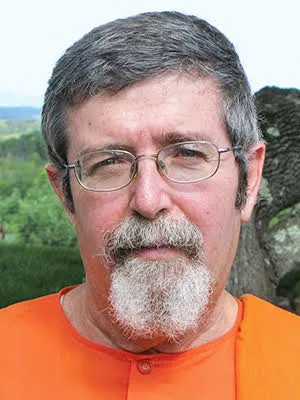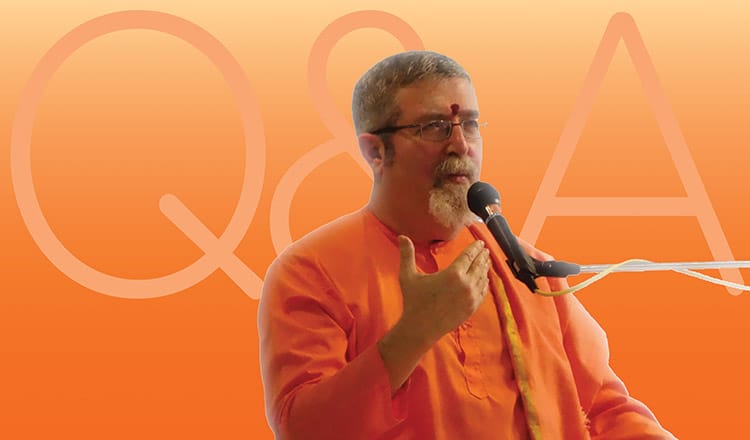Sivananda Bahamas Blog
Expand Your Horizons …
Our Blog
Practice Yoga While Living in the World
Question: Many of us in the Yoga Teachers Training Course either are or will be householders. Can we stay on the path of enlightenment and raise kids at the same time?
Answer: Householders definitely can study and practice yoga. In fact, the sadhana for those leading a family life - what they are practicing - is self-sacrifice. They are learning to abolish the ego, to abolish selfishness. Karma Yoga, the yoga of selfless service, is a very good path for householders. Bhakti Yoga, the yoga of devotion, and Raja Yoga, the yoga of meditation, are also good paths for householders. Then, theoretically, householders can study Vedanta because it is very good to keep the ultimate goal in mind. Householders who practice yoga will find that it is beneficial for the whole family, and especially for the kids. Being a householder should not be an obstacle to the practice of yoga.
Sometimes, however, we need to adapt, adjust and accommodate because when children are born, the parents often don't sleep at night and there are many issues to deal with and so on. Then the question comes, where is the time to practice yoga? The answer is, the time to practice yoga is there in every moment. For example, a mother can repeat her mantra while she rocks the baby, or she can coordinate the rocking of the baby with the breath, and with the mantra. When she feeds the baby she can think of it like a puja: "Oh, this is not only a baby. This is God. I am worshipping God right now." You can practice in many ways. Because you are married, for example, and there are two people, there is a great opportunity to practice Karma Yoga and to develop many wonderful qualities like patience, love, compassion and understanding. Of course, if you like the practice of Hatha Yoga, then you can encourage the other members of your family to join in. Nowadays, there are even people teaching baby yoga, so even small babies can learn to practice yoga.
Certainly, a person who leads a family life can learn to practice yoga; this is not an obstacle. It just requires some flexibility, some creativity, and some adjustment. That is all. Do not think that life in an ashram is easier because an ashram is like an extended family. Sometimes there are difficulties and obstacles that are similar to those we face in family life. But obstacles are not obstacles, they are opportunities. We need determination: "Yes, I have a family and this is wonderful, and I am going to lead a yogic life, and I am going to bring the family in, and this yogic life is going to radiate and bring a lot of blessings and benefits to the family."
What things can an individual do to grow spiritually when the person does not have a living guru and lives a long distance from an ashram or center?
Answer: These days communication is becoming much easier. Use the internet and you can keep in contact with an ashram or center. Create a connection with a teacher you trust and communicate with that teacher. Get some guidance and create a daily routine of practice, and do this practice every day. Fill in a spiritual diary and send it once a month to your teacher so he or she can correct it and send you some advice about the practice. Occasionally, go and visit your teacher; come to the ashram occasionally, go to a yoga center; eventually create your own yoga center if there is no center in your city. If you do not want to create a yoga center, create a circle of yoga in your home. Invite some friends, have a satsang at your home, a small satsang. Meditate, chant, do some study, practice yoga together once a week.
Nowadays, relatively speaking, it is quite easy to get to a yoga center, to maintain contact with a teacher, to get the help of a teacher in our spiritual practice, and so on, since communications are very good. The technology allows you to actually see the teacher even though you are in one place and the teacher in another. If you do not have a high-tech teacher, then you should go and meet your teacher in person; it is very beneficial to go and meet your own teacher. Do your level best to create a daily routine of practice, to keep contact with the teacher, to visit an ashram or a center occasionally, and to create your own circle of yogic practitioners wherever you are.

Swami Swaroopananda is a senior disciple of Swami Vishnudevananda. A practicing yogi from a very young age, Swami Swaroopananda has dedicated his life to the practice and teaching of yoga. He taught in Yoga Teacher Training Courses around the world and is currently teaching advanced yoga philosophy courses and lectures internationally. He is Director of the Sivananda Ashram Yoga Retreat and acharya (spiritual director) for the Sivananda centers and ashrams in the Bahamas and the Middle East. He is a member of the Board of Directors of the International Sivananda Yoga Vedanta Centres.
Upcoming Courses
Enjoy a delicious vegetarian feast, a reading of the Haggadah, Passover chants, and teachings on Passover’s relationship to yogic principles.
In honor of the Sivananda lineage and Swami Swaroopananda's birthday, we invite all guests, friends, and residents of the ashram to come together for a celebration.
During this special time of year we invite you to join us in celebrating wisdom, love, compassion, and the transcendence of artificial barriers.








